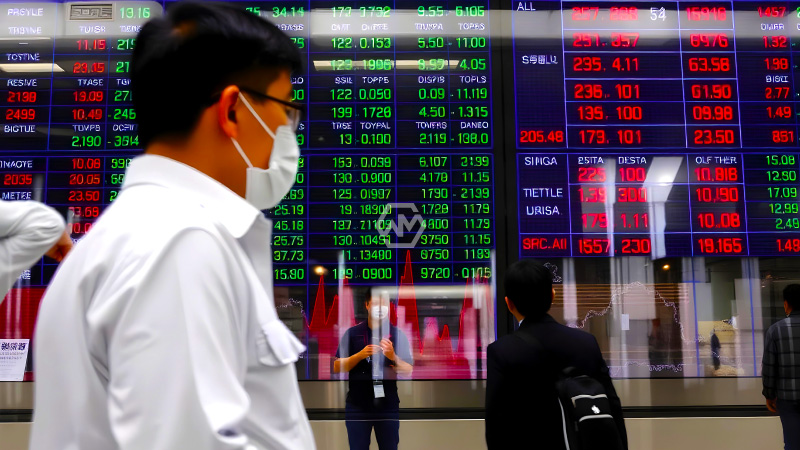- Chinese property developers surged following new measures to boost the housing market.
- Wall Street saw new record highs despite weak U.S. consumer confidence data.
- Treasury yields fell after reports of declining consumer confidence, benefiting markets.
The Asian stock markets saw mixed performances after an early rally driven by China’s efforts to boost its struggling property sector. Beijing’s latest measures to revive the housing market initially lifted shares, especially in Hong Kong and Shanghai.
On Wall Street, the Federal Reserve’s decision to cut interest rates buoyed the market, with the S&P 500 and Dow Jones reaching new all-time highs.
China-Driven Rally Loses Steam as Asian Markets Close Mixed
The Chinese stock market experienced a surge following Beijing’s announcement of policy measures to revive the housing sector, which had been in a prolonged downturn. Hong Kong’s Hang Seng index climbed as much as 1.8% before closing at 0.7% higher. Commodities like oil and copper also saw brief gains on hopes that China’s economic revival could boost demand.
However, market enthusiasm faded throughout the day. In Japan, the Nikkei 225 fell 0.2%, while South Korea’s Kospi dropped by 1.3%. Concerns over the sustainability of China’s economic recovery cast doubt on the strength of this rally. Investors remain uncertain if the measures will have long-term effects on stimulating growth.
In the U.S., Wall Street extended its streak of record highs despite a weaker-than-expected report on consumer confidence. The Federal Reserve’s recent interest rate cuts have provided a buffer against fears of a slowing job market, allowing markets to remain optimistic about the near-term economic outlook. Tech stocks, especially Nvidia, rallied sharply, benefiting from the easing interest rates.
Meanwhile, bond markets reacted to the consumer confidence report, with Treasury yields falling. The 10-year yield slipped to 3.73% as investors recalibrated expectations for future rate moves. This easing of bond yields reflects growing concerns over the potential slowdown in U.S. hiring, which could further dampen economic momentum if not addressed.
While the China-led rally initially sparked optimism in global markets, the long-term effects of these economic measures remain uncertain. Investors are weighing their options, mindful of broader concerns about economic growth and consumer confidence, both in China and the U.S.
“Chinese policymakers are throwing everything they’ve got to fight off deflation and breathe life into growth.” – Stephen Innes, SPI Asset Management



